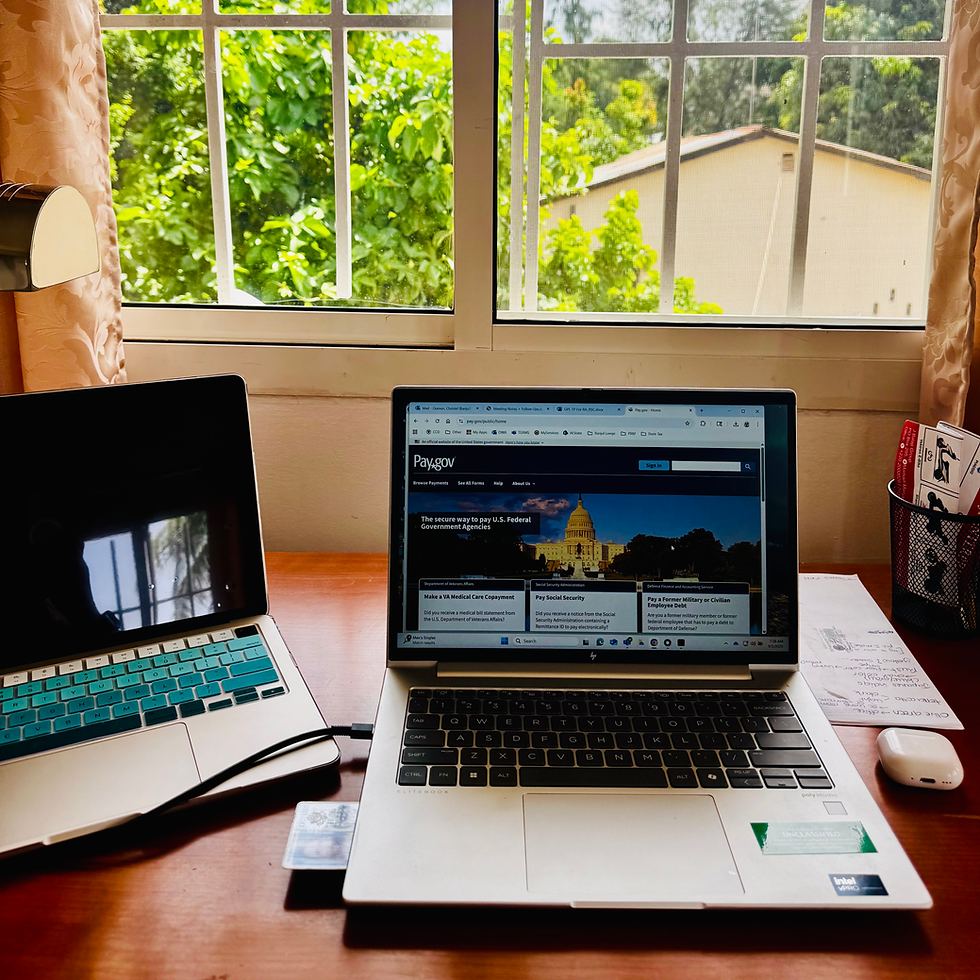The Surge
- Owner

- Feb 14, 2023
- 4 min read
Updated: Apr 1, 2025
For the past month, I’ve been part of coordinating a massive visa surge in Mumbai. The demand for visas here is enormous, and because of COVID we still have a backlog for certain types of visas—tourist visas, mostly. Our Mumbai consulate processes more visas than almost any consulate in the world, but no matter how hard we work, and how many improvements we make to the process, we can’t seem to create enough appointments to satisfy the huge demand.
Solution: organize a visa surge. It won't fix everything, but we can make a big dent in the pent up demand. In this case that means inviting a bunch of additional diplomats to adjudicate visas all day every day for three months, which amounts to thousands of additional appointments per week. Makes sense, right?

I think it makes total sense to get extra consular officers to help out in Mumbai. If only it was a bit easier! Because doubling our capacity to adjudicate visas takes a lot more than flying in a few diplomats.
First of all, identifying consular officers with an active (presidential) consular commission—of which there are only a few thousand at any given time, I'm guessing—is a challenge. Most of these people have jobs, either in the State Department in DC or at other consulates. And we don’t want to create backlogs in other places, of course.
And there is so much more to manage. Visa adjudication requires a ton of support from local staff, so we need to hire or invite more local staff too. And not just any local staff—people with security clearances who are trained in the elaborate visa process and have strong translation skills. In Mumbai, we interview in multiple languages; Hindi, Gujarati, Punjabi, Marathi, Tamil, Telugu, Kannada, and more. We can’t just pluck people off the street to do this work!
And that’s not all. New consular officers need training on local rules, customs and procedures. They need desks with computers. They need an acceptable place to stay while it happens to be the exact time the G20 is holding meetings in Mumbai and all the major hotels are booked!
This surge made me see why doings things differently in a bureaucracy is hard. The goal is to open up thousands of new visa appointment slots on really short notice, but the public is expecting the same level of service from us. We can’t just print half a visa because our ink is running out, or turn people away who have been waiting for a long time and often have traveled long distances to come to the consulate.
It’s a bit early to call the surge a resounding success, since we’re still in the middle of it. But so far, with the support of lots of people, we’re doing a great job. My role in it is really small in a way—as a bureaucrat for the U.S. government you’re always just a small cog in a giant wheel. But it’s been really satisfying to play my role. Being a consular officer is exciting, even more than I realized when I became a foreign service officer three and a half years ago.
Although it’s probably fair to say that it depends on the posting how exciting and high-profile it is. In Berlin, I didn’t always feel like I was changing lives because most Germans can travel visa-free. It just so happens that in countries like India (and Mexico, China, and a number of others) consular operations make up a substantial part of the bilateral relationship. The relationship between the US and India is important in many ways; economic, political, security and people-to-people, given how many Indians live and work in the US. These relations can only flourish if Indians can travel to the US, for which they need a visa.
Why do they need visas? The reality is that potentially millions of people would suddenly travel to the US if it was left uncontrolled. There needs to be security vetting, which is part of what consular officers do. It’s also important that travelers are slotted correctly, according to what our immigration laws allow. Not every student (this is true for all countries) can simply go to the US—they need a student visa, for which they need to show admission into a U.S. school and ability to pay. Workers, like software engineers and doctors, are welcome, but only if a U.S. employer petitions for them, and there’s a yearly cap on how many they can request. Foreigners never have the “right” to a visa, but we feel a major responsibility to our customers—and of course Americans and the U.S. economy—to facilitate as much legitimate travel as possible.
That’s why, every day, I feel like my work at the consulate matters. Even if it can be really tiring to interview a hundred people before lunch. And even if I have to answer mundane emails all day long from colleagues wondering what the check-in time of their hotel is.



